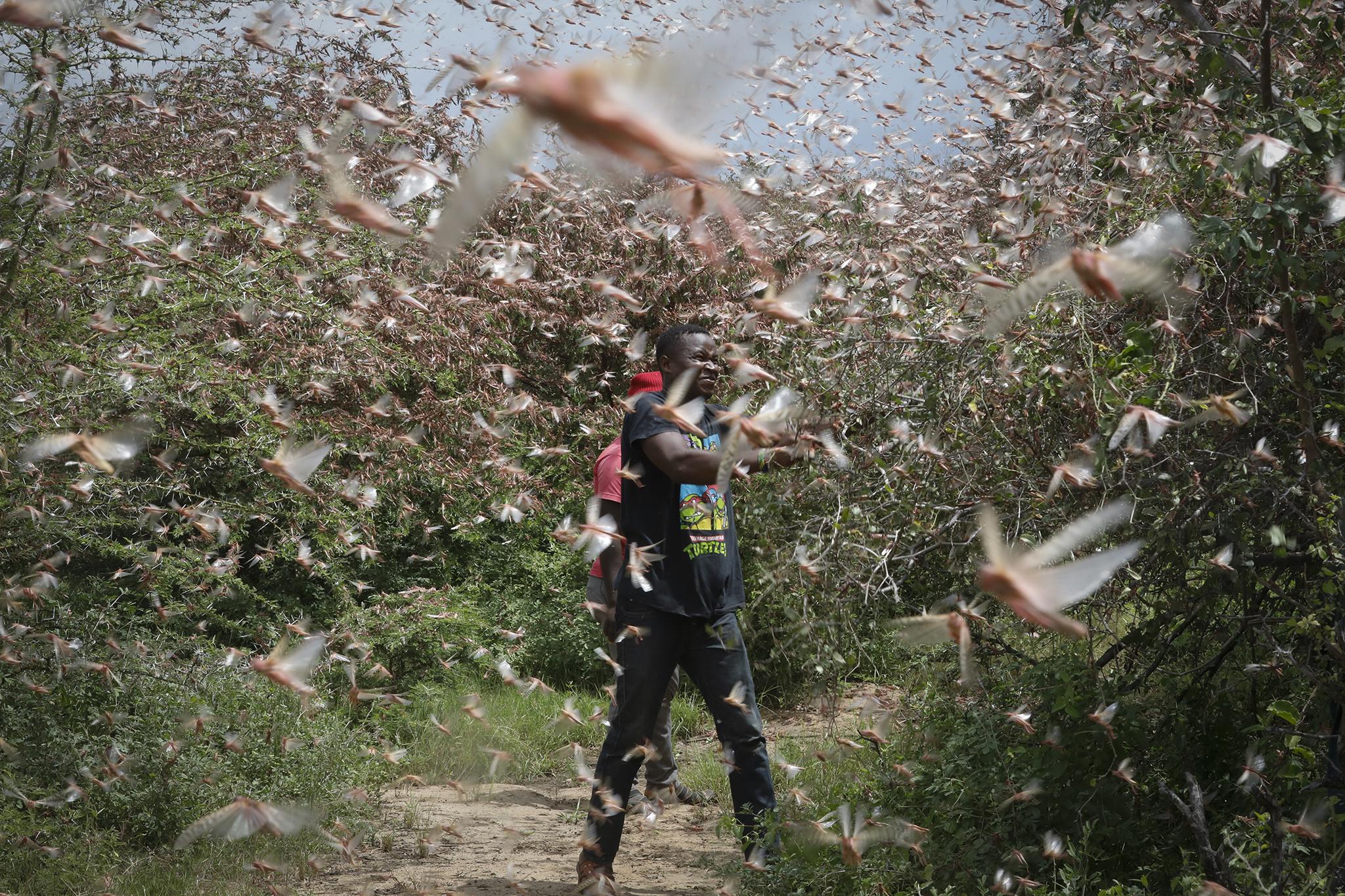East Africa facing ‘triple threat’ from coronavirus, locusts and flooding, Red Cross warns
'We are facing an unusually complex humanitarian situation', Red Cross official says

Your support helps us to tell the story
From reproductive rights to climate change to Big Tech, The Independent is on the ground when the story is developing. Whether it's investigating the financials of Elon Musk's pro-Trump PAC or producing our latest documentary, 'The A Word', which shines a light on the American women fighting for reproductive rights, we know how important it is to parse out the facts from the messaging.
At such a critical moment in US history, we need reporters on the ground. Your donation allows us to keep sending journalists to speak to both sides of the story.
The Independent is trusted by Americans across the entire political spectrum. And unlike many other quality news outlets, we choose not to lock Americans out of our reporting and analysis with paywalls. We believe quality journalism should be available to everyone, paid for by those who can afford it.
Your support makes all the difference.The impact of three separate crises affecting swathes of east Africa at the same time has left hundreds of thousands of people at risk of hunger and sickness, aid workers operating in the region have warned.
Like much of the world, countries in the Horn of Africa and other eastern states have been forced to introduce lockdown measures to limit the spread of the Covid-19 coronavirus.
However the virus has arrived in the region at the same time as flooding struck states including Kenya, Somalia and Rwanda - displacing roughly half a million people while causing almost 300 confirmed deaths.
And the risk of both Covid-19 and waterborne disease affecting exposed people has been further compounded by one of the worst locust infestations for decades - with hundreds of billions of the insects ravaging crops, affecting both food supplies and sources of income.
Dr Simon Missiri, who oversees the International Federation of Red Cross and Red Crescent Societies’ (IFRC) response in Africa, said those on the ground were facing “an unusually complex humanitarian situation”
“The ongoing flooding crisis is exacerbating other threats caused by Covid-19 and the invasion of locusts. Travel and movement restrictions meant to slow down the spread of Covid-19 are hampering efforts to combat swarms of locusts that are ravaging crops. Flooding is also a ‘threat amplifier’ with regards to the spread of Covid-19 as it makes it hard to implement preventive measures.”
The organisation has since deployed a £5.9m response in Ethiopia, Kenya, Somalia, South Sudan, Tanzania, Rwanda and Uganda - including the handing out of food items and other essentials. Dr Simon added: “We are worried that the number of people who are hungry and sick will increase in the coming weeks as flooding and Covid-19 continue to severely affect the coping capacity of many families in the region.
“Harsh weather conditions are having a multiplier effect on an already difficult situation and this could potentially lead to worrying levels of food insecurity in the region.”
The spread of the virus on the continent appears to have been diminished compared to that experienced in the rest of the world - with many African nations quick to deploy lockdown measures before any confirmed cases were announced. Concern also remains that some nations do not have adequate testing facilities to truly record the scale of the outbreak in their regions.
Despite initially slow spread the World Health Organization announced on Friday the continent had recorded more than 100,000 cases - while still reporting fewer deaths than Europe when the continent hit the same marker.
"For now Covid-19 has made a soft landfall in Africa, and the continent has been spared the high numbers of deaths which have devastated other regions of the world," said Dr. Matshidiso Moeti, WHO regional director for Africa.
Dr. Mike Ryan, WHO executive director of Health Emergencies Programme, added: "On the one hand, good news -- the disease hasn't taken off in a very fast trajectory, but there's a concern some countries are accelerating in the number of cases."
Concerns remain that even without the compounded issues of plagues and floods in the east of the continent, some African nations with diminished infrastructure may struggle to enforce lockdown measures.
Meanwhile more than half of respondents said they would also run out of money if they were forced to stay at home to control the spread of Covid-19.
Join our commenting forum
Join thought-provoking conversations, follow other Independent readers and see their replies
Comments